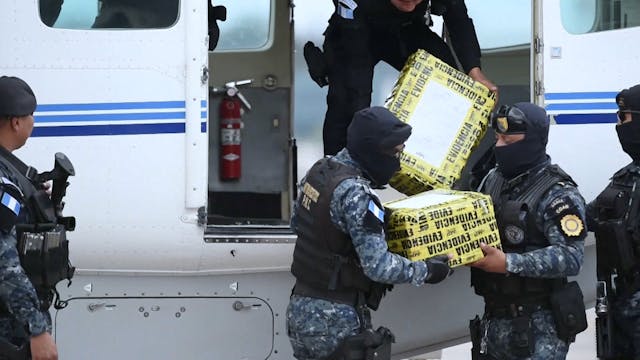Violence in Mexico is Forcing People Out of Their Homes
Americas Now
•
13m
In Mexico, the issue of migration goes beyond Central Americans crossing the country to reach the U.S. Border. Drug cartel violence is forcing thousands of Mexicans to flee their homes and towns.
Since the start of Mexico’s War on Drugs in 2006, more than 150,000 Mexicans have been displaced.
Defined as the “involuntary or coerced movement of people away from their home or home region," the reasons for displacement are manifold; natural disasters, water contamination, air pollution, political and/or religious persecution.
But in Mexico, by far the most common cause is organized crime.
As Mexico descends into ever-worsening violence, thousands upon thousands are falling victim to this phenomenon of "forced displacement" every year. And as Correspondent Alasdair Baverstock reports, the situation is only getting worse.
Watch CGTN LIVE on your computer, tablet or mobile
http://america.cgtn.com/livenews
Subscribe to CGTN America on YouTube
Follow CGTN America:
Twitter: @cgtnamerica
Facebook: @cgtnamerica
Instagram: @cgtnamerica
TikTok: @cgtnamerica
Up Next in Americas Now
-
Guarding the rainforest in Guatemala ...
A tropical forest in the north of Guatemala was once guarded by the Mayan civilization. Today, local descendants are managing the resources of the 2-million-hectare jungle by using sustainable ancestral methods. But drug traffickers invested in the area as well and built hidden runways, labs and...
-
A homelessness spike in Latin America...
Sao Paulo is Brazil’s largest city and home to over 20 million people. The coronavirus pandemic has left thousands without jobs and the number of homeless is rising dramatically. Stephen Gibbs has the story.
-
A massive water-supply-chain interrup...
In 1944 Mexico and the United States agreed to share water from three rivers that run through their border from California to Texas. Today, due to drier conditions, the Aztec nation is struggling to meet a quota that could endanger a decades long deal. Alasdair Baverstock explains.



